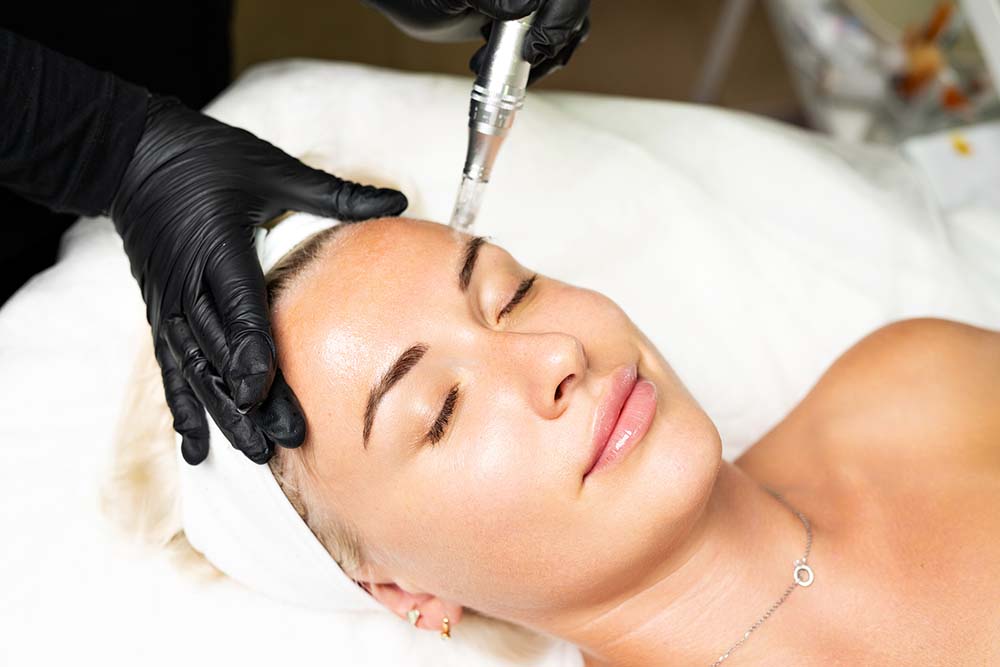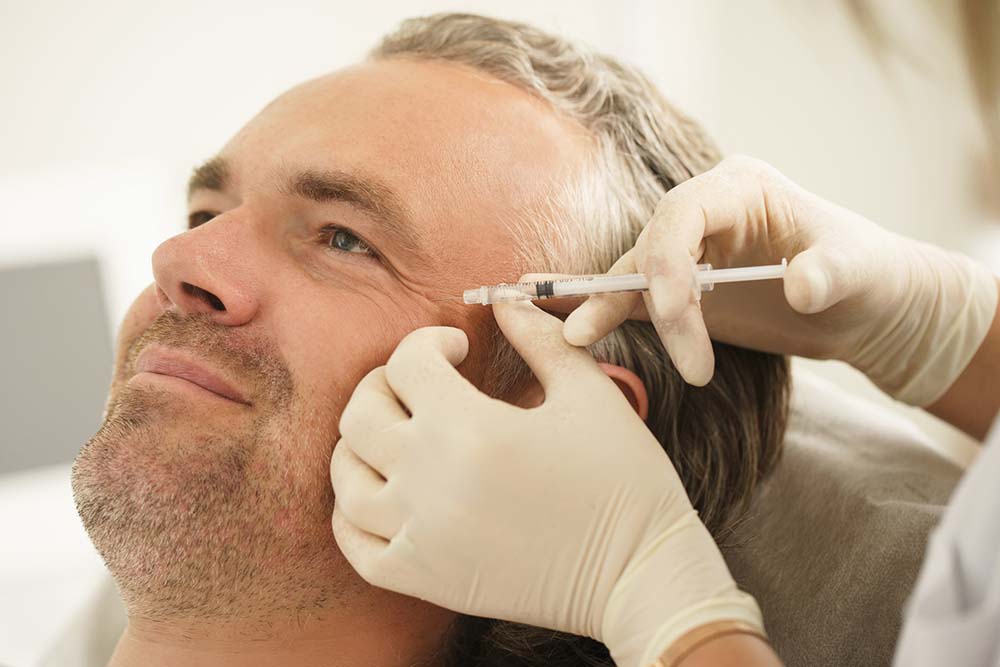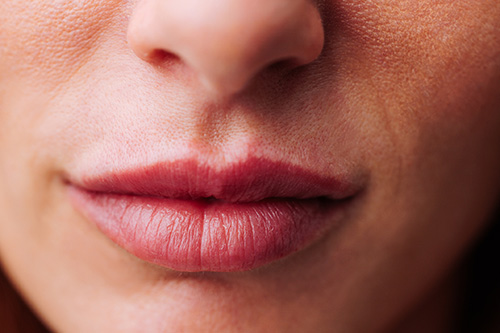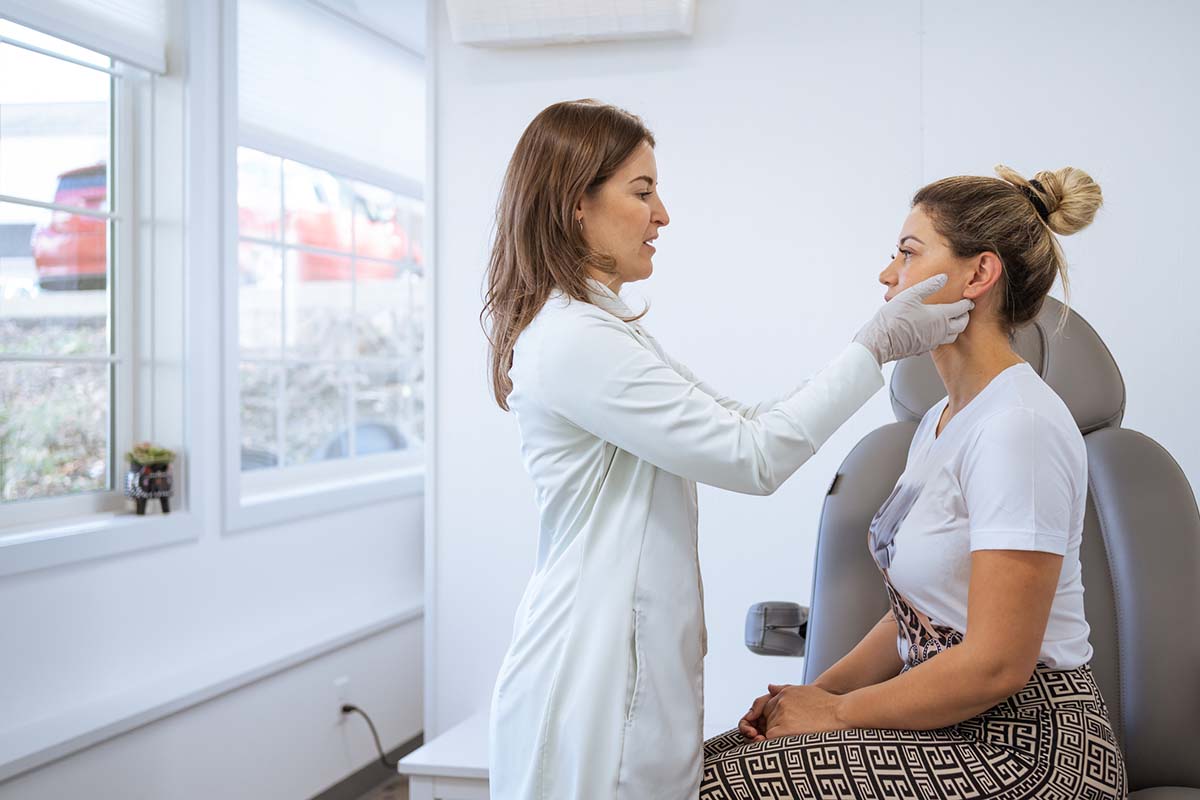Top 3 Medical Causes of Hair Loss in Women.
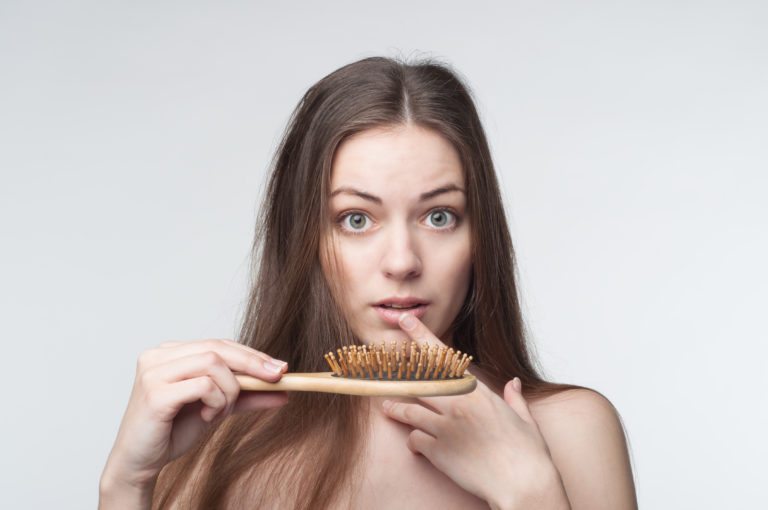
Hair loss in women can be a traumatizing journey to go through. We associate hair with femininity and identity, and it can be somewhat depressing when you think that’s being taken away.
Female hair loss is not as common as it is in men, however, according to the American Academy of Dermatology, 40% of women see some form of hair loss by the time they reach the age of 40. That’s pretty significant.
While there are numerous causes of female hair loss, like pregnancy, over-processed hair and wearing your hairstyles too tight, we are going to focus on the top 3 medical causes of hair loss.
GENETICS: This type of hair loss is known as androgenetic alopecia. You can inherit this gene from either your mother or your father’s side of the family and it will be more likely to impact you if you get it from both sides. Women can start seeing this type of hair loss start as early as their teens to 20’s and the earlier it starts, generally the more severe it will become. Hair loss will start happening around the crown of the head and/or the part. TREATMENT: The best thing you can do is see your dermatologist. They can prescribe the best options out there for you to try because more than likely they won’t be over-the-counter.
HYPOTHYROIDISM: Your thyroid is a gland that produces a crucial hormone to support overall bodily function. It is responsible for helping with metabolism, regulating body temperature and supporting the health of your hair, skin, and nails. When your thyroid produces too little of the hormone, it’s called hypothyroidism (or underactive thyroid). This can cause symptoms from unexplainable weight gain because it slows down your metabolism to causing hair loss. TREATMENT: Visit an endocrinologist or another specialty office that treats thyroid and/or hormone imbalances. They will do bloodwork and will place you on a thyroid hormone medication to help balance everything out.
IRON DEFICIENCY ANEMIA: Iron is one of the most important minerals for your hair. Women who have heavy monthly periods and don’t replenish with enough iron enriched foods could experience iron deficiency anemia which is caused by low numbers of red blood cells. This, in turn, can result in hair loss. TREATMENT: Have your doctor test your blood and see if this could be a cause. If it is, depending on the severity, they may issue you an iron supplement. Also, take a look at your diet and make sure you are getting plenty of iron-enriched foods such as grass-fed beef, lentils, spinach, beans, and pistachios.
The upside to all of these causes of hair loss in women, there are treatment options. Our best advice is to visit your dermatologist or family doctor to determine what the real issue is and go from there!


